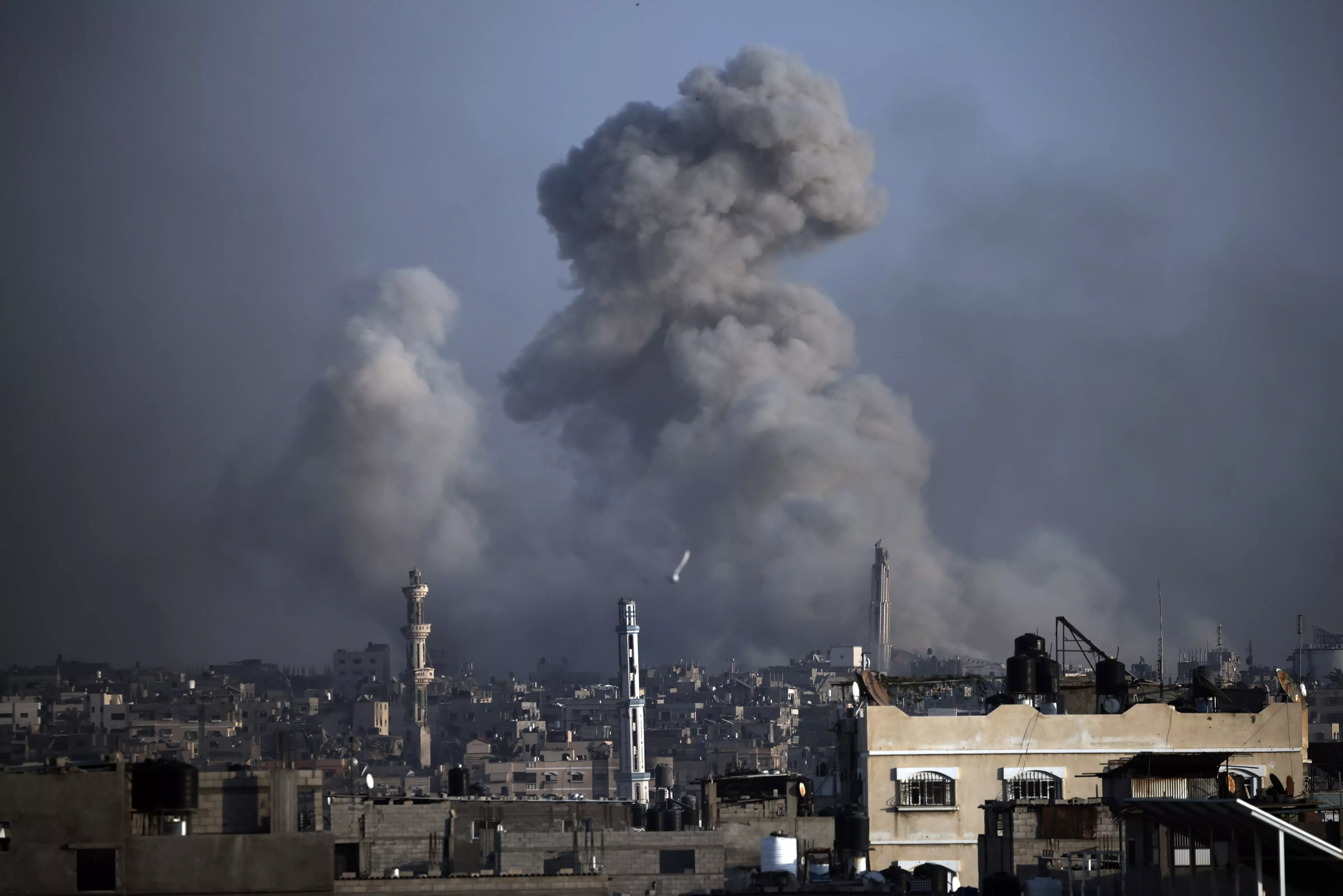
- Home
- India
- World
- Premium
- THE FEDERAL SPECIAL
- Analysis
- States
- Perspective
- Videos
- Sports
- Education
- Entertainment
- Elections
- Features
- Health
- Business
- Series
- In memoriam: Sheikh Mujibur Rahman
- Bishnoi's Men
- NEET TANGLE
- Economy Series
- Earth Day
- Kashmir’s Frozen Turbulence
- India@75
- The legend of Ramjanmabhoomi
- Liberalisation@30
- How to tame a dragon
- Celebrating biodiversity
- Farm Matters
- 50 days of solitude
- Bringing Migrants Home
- Budget 2020
- Jharkhand Votes
- The Federal Investigates
- The Federal Impact
- Vanishing Sand
- Gandhi @ 150
- Andhra Today
- Field report
- Operation Gulmarg
- Pandemic @1 Mn in India
- The Federal Year-End
- The Zero Year
- Science
- Brand studio
- Newsletter
- Elections 2024
- Events
- Home
- IndiaIndia
- World
- Analysis
- StatesStates
- PerspectivePerspective
- VideosVideos
- Sports
- Education
- Entertainment
- ElectionsElections
- Features
- Health
- BusinessBusiness
- Premium
- Loading...
Premium - Events

Israel and its backer, the US, have used the sectarian schism to successfully divide and weaken any opposition to the Jewish state’s occupation of Palestinian territories.
Israel’s unrelenting attack on Gaza, for over a 100 days, leading to the deaths of more than 23,000 Palestinians is opening up fault lines in the Middle-East (or, West Asia) and among Muslim countries in the region. The latest unprecedented missile attack by Iran on Pakistan, and vice versa, too appears linked to the bloodletting in the Palestinian-Israeli conflict.
Most, including Palestinian sympathisers, agree that the October 7 Hamas strike on Israel was condemnable for its brutality and for targeting Israeli civilians. But the continuing Israeli attack on Palestinians in Gaza has managed to push aside the initial pro-Israel sympathy. Worse, it has opened up long-festering fault lines among Arab-Muslim nations in the region.
Another bloody chapter
When the Hamas, variously described as a terrorist organisation or a resistance group, attacked Gaza on October 7 it may have been unprecedented in terms of the surprise element, scale and intensity. But, in reality, it was simply another bloody chapter in a conflict that has gone on continuously for at least seven decades. The Arab and other Muslim nations in the region, all of whom until 1973 unequivocally sided with the Palestinians, have over time seem to have lost their focus on the conflict.
Egypt in 1979, Jordan in 1994, and more recently the United Arab Emirates, Bahrain and Morocco established ties with Israel even as the Palestinian issue has dragged on. Turkey has been a constant partner of Israel for most of the time. The biggest catch for Israel has been Saudi Arabia. Riyadh’s Mohammed bin Salman’s regime hasn’t signed on the dotted line but it has come close to it. The October 7 Hamas attack and the ensuing violence may put off a formal agreement, but the Saudis are already virtually with Israel.
As for Qatar, which has attempted to play the role of peacemaker, and succeeding to some extent it has had a low key relationship with Israel for around two decades – possibly with US backing. Qatar has also backed Hamas, placing the al-Thani regime in Doha in a unique position that it has leveraged to try broker some lasting deal between the two.
Iran, since the Islamic revolution in 1979, stands out from the rest not only for its unwavering support for the Palestinian cause but also as a nation that stands for the decimation of Israel. As a Shia-dominated country, it has built a formidable sectarian axis in the region among the Hizbollah (Lebanon’s prominent politico-military outfit), Syria’s ruler Bashar al-Assad, the Houthis in Yemen and with Hamas, the Islamic Resistance Front of Palestine, in Gaza.
Houthis cause bigger damage
The Hizbollah has fired rockets into Israel more as a show of solidarity for the Palestinian victims in Gaza, while the Houthis (in power in Yemen) have caused bigger damage by disrupting international shipping on the Red Sea – in a desperate measure to somehow stop the “genocide” in Gaza.
With Iran’s backing, only the Shia have reacted strongly to the conflict in Gaza. The Muslim nations which have acceded to dine with Israel, are Sunni-dominated. In effect what this means is that Israel and its backer, the US, have used the sectarian schism to successfully divide the region and weaken any opposition to Israel’s occupation of Palestinian territories.
Shocked by the scale of Hamas’s attack, the Benjamin Netanyahu government in Israel has tried to regain its hold over the conflict – this time by its ruthlessness in not differentiating between Hamas fighters and ordinary Palestinians including women and children. It appears unconcerned by the resulting accusation of mounting a “genocidal” campaign. In the midst of a divided Arab response it has taken a time-tested Palestinian ally, South Africa, to move the International Court of Justice accusing Israel of committing genocide.
The unbending enemy
For Israel and its supporters, Iran has frustratingly been the unbending enemy with no way to rein in its government and the ruling Islamic clergy. And, as if to punish Iran comes the bomb attack at Kerman in southern Iran on January 3 during an event marking the third anniversary of the assassination of its top intelligence official General Qassem Soleimani. The blast killed 84 people and injured scores.
It was not a surprise that Iran initially accused Israel of engineering the blast. The logic pointed to Israel venting its anger at Iran’s suspected involvement in the October 7 attack by backing Hamas. Unexpectedly, the Islamic State claimed responsibility. It was almost as if IS was doing Israel a favour by triggering a deadly blast in Iran.
Circumstantially speaking, the IS has all but been decimated in Iraq and Syria – and is now a shadow of its former self. Further, the reason for triggering the explosion -- which is that the IS is taking revenge against Iran for helping put it down – is not convincing. Without the might of the US and other big western powers in defeating it, the IS would have continued to remain strong – Iran, or no Iran.
Iran-Pakistan tension
Tehran has responded to the purported IS attack by attacking what it sees are some of its camps still in Pakistan and Iraq, both of which are friends of the United States. Iran and Pakistan have had mutual differences for long, again on sectarian issues, with each accusing the other of harbouring militant groups inimical to one another, along Shia-Sunni lines. The fact that Iran deigned to bomb so-called Sunni militant camps in Pakistan is however the first time it has thought fit to do so, leaving Islamabad with no option but to retaliate, to safeguard its dignity.
The attacks on international shipping lines, increased tensions in Asia and the South African response appear to be the first stirrings of a wider conflict. These are sporadic with no way of saying where and what they will lead to, unless of course Israel ends its violence in Gaza.


